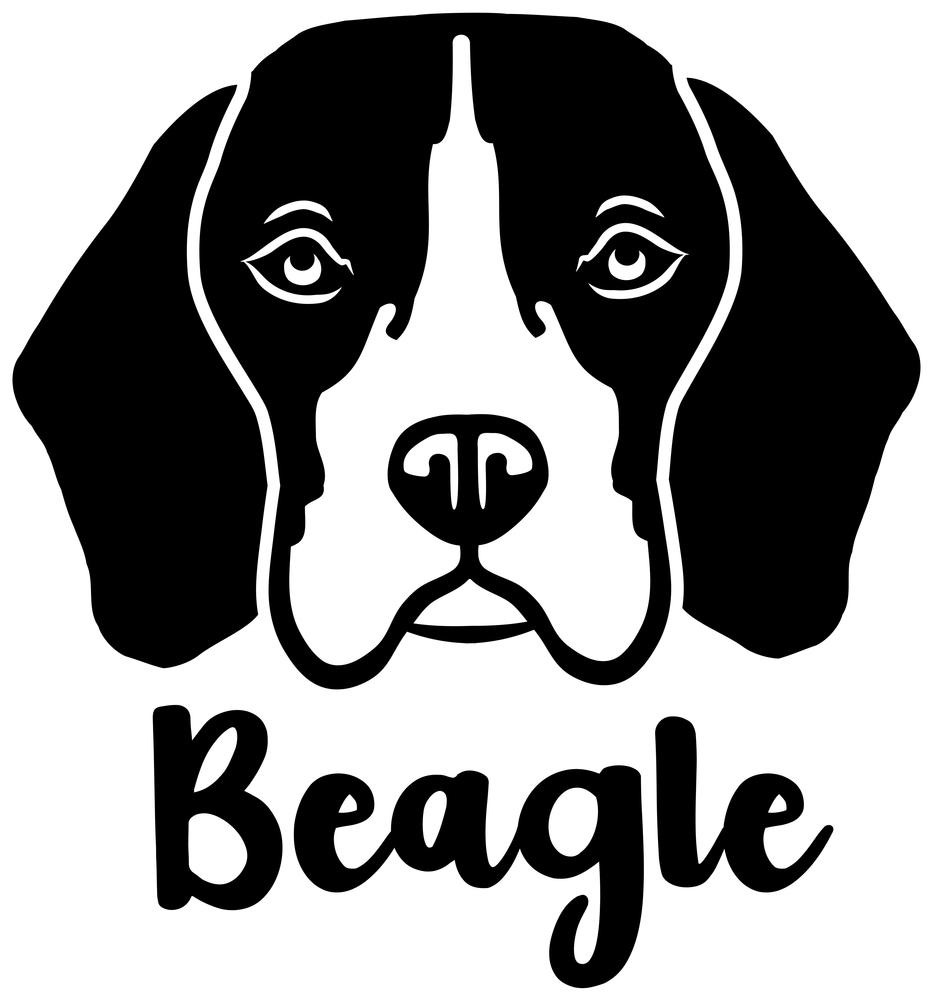
Introduction to Beagles
Welcome to our comprehensive guide about Beagles. Beagles are one of the most popular breeds around the world, known for their friendly nature and distinctive appearance. In this section, we will provide an overview of the Beagle breed and discuss their unique characteristics.
- Overview of the Beagle breed
- Beagle breed characteristics
Beagles are small to medium-sized dogs that originated in England. They were initially bred for hunting due to their keen sense of smell and tracking instinct. Today, Beagles are loved for their friendly and outgoing personality, making them a popular choice for families.
Beagles have several distinctive characteristics that set them apart from other breeds. They are known for their short legs, long ears, and a strong, muscular body. Their coat is typically tricolor, featuring shades of white, black, and brown. Beagles have a keen sense of smell, second only to the Bloodhound. This makes them excellent at tracking scents, a trait that was highly valued in their hunting days.
| Characteristic | Description |
|---|---|
| Size | Small to medium |
| Coat | Short and dense, typically tricolor |
| Personality | Friendly, outgoing, and great with kids |
| Sense of Smell | Excellent, second only to the Bloodhound |
Understanding the breed characteristics of Beagles can help potential owners determine if this breed is the right fit for their lifestyle. In the following sections, we will delve deeper into Beagle behavior, training, and personality traits.
Understanding Beagle Behavior
Beagles are a popular breed known for their friendly nature and distinctive appearance. However, to fully appreciate these adorable dogs, it’s important to understand their behavior. This will help you build a stronger bond with your Beagle and ensure a harmonious living environment.
Common Beagle Behavior Traits
Beagles have some unique behavior traits that set them apart from other breeds. Here are three key traits that are commonly observed in Beagles:
- Beagle’s Love for Exploration: Beagles are naturally curious and love to explore their surroundings. This trait can be traced back to their hunting origins, where they had to search for prey in the wild. Beagles love to investigate new smells and sights, and they can often be found sniffing around in the garden or park.
- Beagle’s Strong Sense of Smell: Beagles have an incredibly strong sense of smell. In fact, they have over 220 million scent receptors, compared to humans who have just 5 million! This powerful sense of smell can sometimes lead them to become distracted, especially during walks, as they love to follow interesting scents.
- Beagle’s Social Nature: Beagles are extremely social animals. They love to be around people and other dogs. This is why they often do well in families and are known to be great with kids. However, their social nature means they don’t like to be left alone for long periods, as they can become bored and anxious.
Understanding these behavior traits can help you better cater to your Beagle’s needs and ensure they lead a happy and fulfilled life. Remember, every Beagle is unique and may not display all these traits. It’s always important to spend time with your Beagle to understand their individual personality and behavior.
Decoding Beagle Temperament
Understanding a Beagle’s temperament is key to building a strong and loving relationship with this breed. Let’s delve into the unique traits that define a Beagle’s temperament.
- Beagle Temperament Traits
- Beagle’s Friendly and Outgoing Personality
- Beagle’s Intelligence and Stubbornness
Beagles are known for their lively and energetic nature. They are generally good-natured and get along well with other dogs and humans. They are also known for their curiosity and determination, which can sometimes be perceived as stubbornness.
Beagles are incredibly friendly and outgoing dogs. They love to socialize and are often seen wagging their tails in excitement when meeting new people or dogs. This breed thrives on companionship and does not like to be left alone for long periods. Their outgoing personality makes them great family pets and excellent companions for children.
Beagles are intelligent dogs, which can sometimes lead to a bit of stubbornness. They are quick learners, but their independent nature can sometimes make them a little challenging to train. However, with patience and consistency, you can harness their intelligence for positive behaviors. Remember, a well-trained Beagle is a happy Beagle!
In conclusion, Beagles are friendly, intelligent, and sometimes stubborn dogs. Their outgoing nature and love for companionship make them excellent family pets. Understanding these temperament traits can help you build a strong bond with your Beagle.
Training Beagles
Training a Beagle can be a rewarding experience, but it requires patience and consistency. Beagles are intelligent and curious dogs, which can make them both fun to train and a bit of a challenge. Here are some techniques that can make the training process easier and more effective.
Training Techniques for Beagles
There are several techniques that can be used to train Beagles. These techniques are designed to work with the Beagle’s natural instincts and behaviors to encourage obedience and good manners.
- Positive reinforcement techniques
- Consistency in training
- Early socialization
Positive reinforcement involves rewarding your Beagle for good behavior. This can include treats, praise, or playtime. When your Beagle does something you want them to do, immediately give them a reward. This helps them associate the behavior with something positive, encouraging them to do it again. For example, if your Beagle sits when you ask them to, give them a treat and praise them.
Consistency is key when training a Beagle. This means using the same commands and rewards each time. If you change the rules or the rewards, your Beagle may become confused and not understand what you want them to do. For instance, if you use the command “sit” one day and “down” the next, your Beagle may not understand that these commands mean the same thing.
Socializing your Beagle from a young age can help them become more comfortable around other dogs and people. This can make them easier to train and less likely to develop behavioral problems. You can socialize your Beagle by taking them to dog parks, inviting people over to your home, or enrolling them in puppy classes.
In conclusion, training a Beagle requires patience, consistency, and a positive approach. By using these techniques, you can help your Beagle become a well-behaved and happy member of your family.
Addressing Beagle Behavior Problems
Beagles are known for their friendly and outgoing personalities. However, like any other breed, they may exhibit certain behavior problems. Here, we will address three common issues: excessive barking, stubbornness, and separation anxiety.
- Dealing with Excessive Barking
- Managing Beagle’s Stubbornness
- Addressing Beagle’s Separation Anxiety
Beagles are vocal dogs, and their barking can sometimes become excessive. This can be a nuisance, but remember, it’s their way of communicating. To manage this, try to understand the cause of their barking. Are they bored? Anxious? Excited? Once you identify the reason, you can address it appropriately. For instance, if they’re bored, providing them with toys or engaging them in activities can help.
Beagles are known for their stubborn streak. This can make training a bit challenging. However, with patience and consistency, you can manage this behavior. Positive reinforcement techniques work well with Beagles. Rewarding them for good behavior encourages them to repeat it. Remember, it’s important to be consistent with your commands and rewards.
Separation anxiety is a common issue among Beagles. They are social animals and prefer company. If left alone for long periods, they may become anxious. To address this, try to gradually increase the time you spend away from them. Start with short periods and slowly extend the duration. Also, providing them with toys or activities that keep them engaged can help reduce their anxiety.
In conclusion, understanding your Beagle’s behavior and addressing it appropriately is key to a happy and healthy relationship with your pet. Remember, patience and consistency are crucial when dealing with these issues.
| Behavior Problem | Solution |
|---|---|
| Excessive Barking | Identify the cause and address it. Provide toys or activities if they’re bored. |
| Stubbornness | Use positive reinforcement techniques. Be consistent with commands and rewards. |
| Separation Anxiety | Gradually increase the time you spend away. Provide engaging toys or activities. |
Beagle Personality Traits
Beagles are one of the most popular breeds of dogs, and for good reason. They are known for their friendly and outgoing personalities. Let’s delve into some of their most prominent personality traits:
- Beagle’s Playful Nature
- Beagle’s Loyalty to Their Owners
- Beagle’s Adaptability to Different Environments
Beagles are known for their playful and energetic nature. They love to play games and are always ready for a good run in the park. This playful nature makes them great companions for families with children. They are always ready for a game of fetch or a playful romp in the backyard. Their playful nature is not just limited to their human family members. Beagles also get along well with other dogs and pets. They love to play and interact with their fellow four-legged friends.
Beagles are extremely loyal to their owners. They form strong bonds with their human family and are always eager to please. This loyalty makes them great companions and family pets. They are always ready to protect their family and are known to be very protective. Their loyalty also makes them great working dogs. Beagles have been used as hunting dogs for centuries due to their loyalty and determination.
Beagles are highly adaptable dogs. They can thrive in a variety of environments, from apartments to large homes with backyards. They are comfortable in both urban and rural settings. This adaptability makes them a great choice for families of all types. Whether you live in a bustling city or a quiet countryside, a Beagle can easily adapt and make itself at home.
In conclusion, Beagles are playful, loyal, and adaptable dogs. Their friendly and outgoing personalities make them great companions for families of all sizes and types. If you’re considering adding a furry friend to your family, a Beagle could be the perfect choice.
Conclusion
In wrapping up our discussion about Beagles, it’s important to highlight two key points that every potential Beagle owner should keep in mind.
- Understanding and appreciating Beagle’s unique behavior and temperament: Beagles are known for their friendly, outgoing, and energetic nature. They are excellent with children and other pets, making them a great choice for families. However, they also have a strong sense of smell and can be stubborn at times. Understanding these traits can help you interact with your Beagle in a more meaningful and rewarding way.
- Importance of proper training and socialization: Beagles are intelligent and eager to please, but they also require consistent training from a young age. Socialization is equally important, as it helps your Beagle become a well-rounded and confident adult dog. Regular training and socialization sessions can significantly enhance your Beagle’s behavior and temperament.
Remember, owning a Beagle is a long-term commitment that requires time, patience, and love. But with the right approach, you can enjoy a wonderful and fulfilling relationship with your Beagle.
So, whether you’re considering getting a Beagle or you’re already a proud Beagle owner, we hope this guide has provided you with valuable insights into understanding and caring for these unique and lovable dogs.





